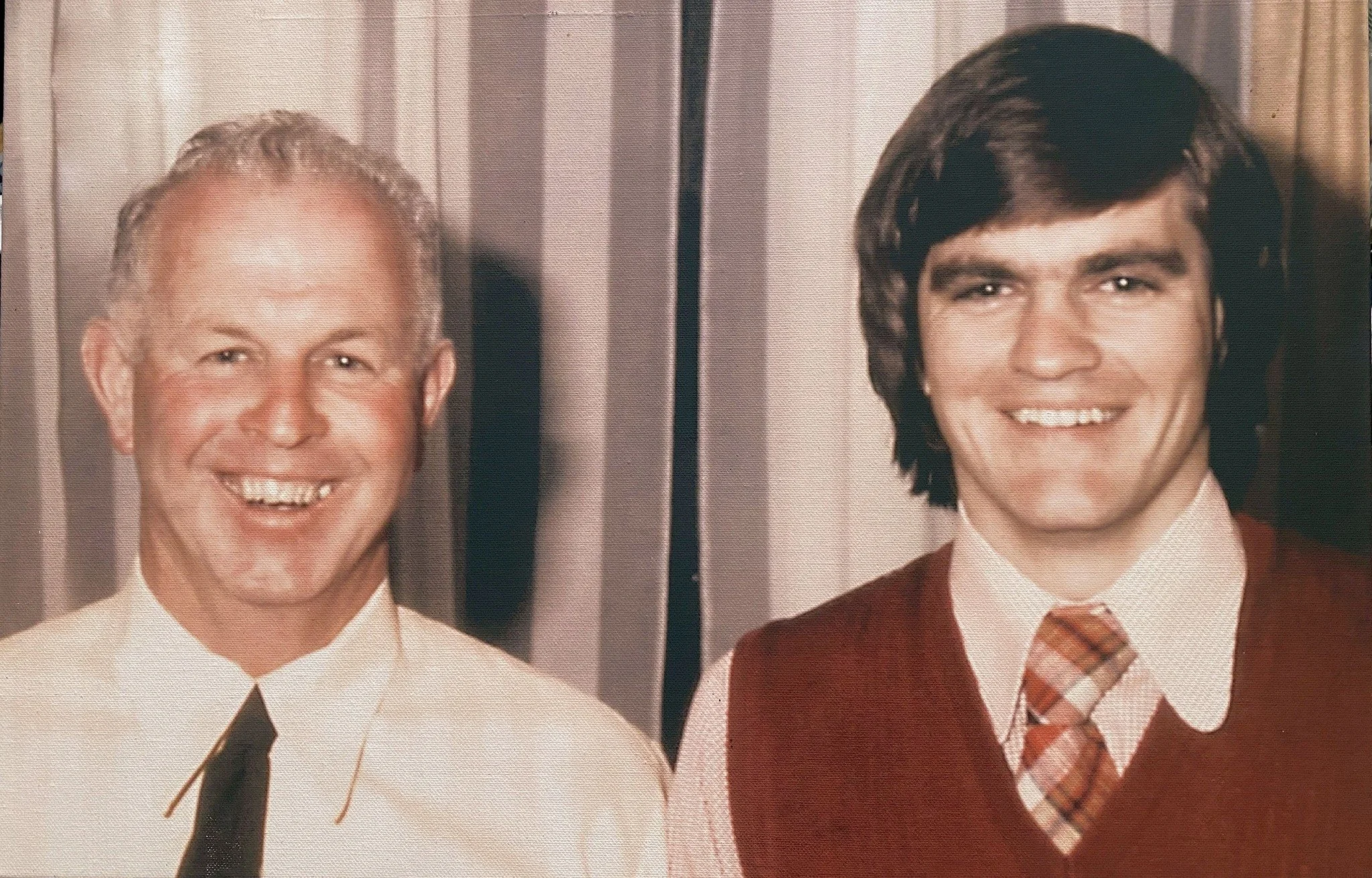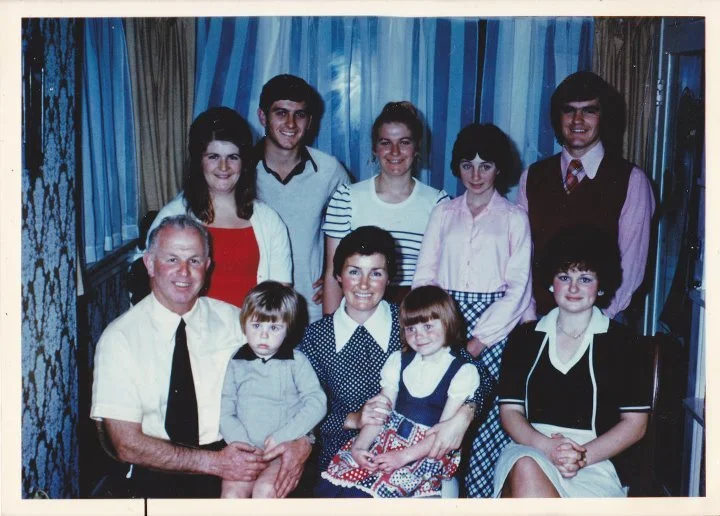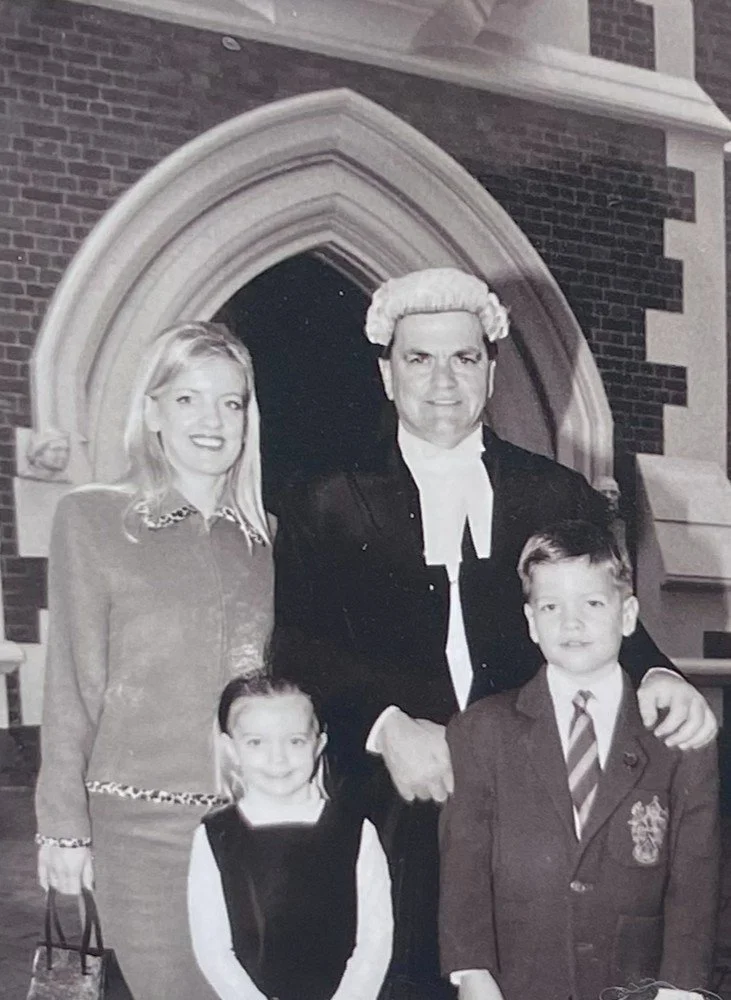Dreams of My Father
The following is based on an interview given by Bruce Stewart to his then 11 year old daughter, Charlotte for a school assignment in 2011. Sadly, Bruce passed away on 4 June 2025.
I was born and raised in Huapai, a small township about 30 kilometers northwest of Auckland. From the day I was born until I left for university, we lived in the same house in Greens Road (now 8 Oraha Road). My father, Bob, a builder, had built it in the early 1950s. It was a modest, safe, and warm home.
My mother’s name was Lola. When I was about six years old, she left our family. A few years later, when I was around nine, Dad remarried. My stepmother, Marg, became part of our lives.
I come from a big family. I have five sisters—Carol, Lorna, Sue, Joy, and Tracy—and two brothers, Dave and Colin. I got along well with them most of the time. We didn’t fight or squabble, but we also didn’t spend that much time together, mainly because I was away at boarding school for long stretches.
From 1958 to 1961, I went to Huapai Primary School. I used to walk there every day, about a mile each way. I have distant memories of most days—some of the teachers, and, unfortunately, the dreaded dental nurse visits and the warm milk we had to drink during summer morning breaks.
Before I went to boarding school, I didn’t really have any chores or responsibilities at home, apart from running errands to the local IGA or, less often, the Four Square store. I always preferred the IGA—Mr. and Mrs. Frank Rumble were kind and gave me sweets. Mr. Hendry at the Four Square always seemed annoyed to have customers.
In 1962, when I was eight, I started boarding at Dilworth School. I stayed there until 1970. Life at Dilworth was strict. The headmaster was a retired brigadier from the New Zealand Army, and discipline was tough—canings were common for even small infractions like bad manners in the dining hall. But despite the strictness, I remember being happy. I did well in school and excelled in sports.
Our daily routine at Dilworth was rigid and full. At 6:30 a.m., the prefect would ring the bell. We had to jump out of bed and go to the bathrooms, where we dunked ourselves in freezing tubs of water. After that, we made our beds, got dressed in our uniforms, and did our assigned chores. Each boy had a specific job for the term—mopping floors, sweeping yards, cleaning mirrors, rolling cricket pitches, and later, supervising juniors. I had a job every term until I became a prefect in 1970.
At 7:30 a.m., we assembled in silence outside the dining hall for announcements. Breakfast followed, and by 8:30 we were either in chapel or at assembly, depending on the day. We had morning classes, lunch at 12:30, then afternoon classes. Around 3:30 p.m., we were given an apple and moved on to sports or music. Twice a week we did work duty under the caretaker’s instruction. At 5:15 p.m., we lined up for dinner and afterward returned to our boarding houses for evening announcements and a prayer. "Prep"—our homework time—ran in silence from 6:20 p.m. until 7:00 for juniors or 9:00 for seniors. After prep, we changed into pyjamas, had cocoa and a gingernut biscuit, read for 15 minutes, and then it was lights out. If you talked after lights out, you were caned. Juniors’ lights went off at 7:30 p.m., seniors’ at 10:00 p.m.
I didn’t have many hobbies—there simply wasn’t time. My days were filled with classes, chores, and sports. I played rugby, cricket, athletics, cross country, and tennis. I didn’t do as well in tennis as I’d hoped, but I was successful in all the others. Sport was something I really enjoyed and took pride in.
I wasn’t given any pocket money as a young child, but once I started at Dilworth, my father maintained a small account for me at school.
One of my strongest memories comes from September 1975, when I was 22 and preparing to board a flight to London to begin three years of study at Oxford University as part of my Rhodes Scholarship. As I said goodbye to my father, he hugged me tight and kissed me on the cheek—the only time I can ever remember him doing so. Even though I always knew he loved me, that moment was powerful. He had told me from a very young age—even before I started school—that I would become a lawyer. He did everything he could to help make that dream a reality. I loved him dearly and never wanted to let him down.



